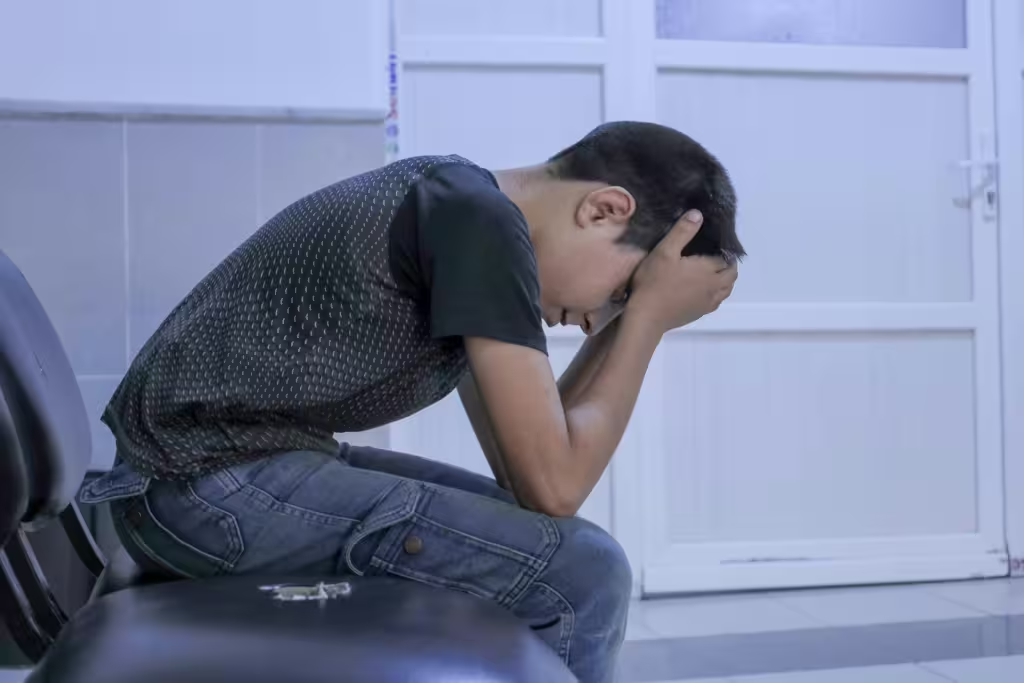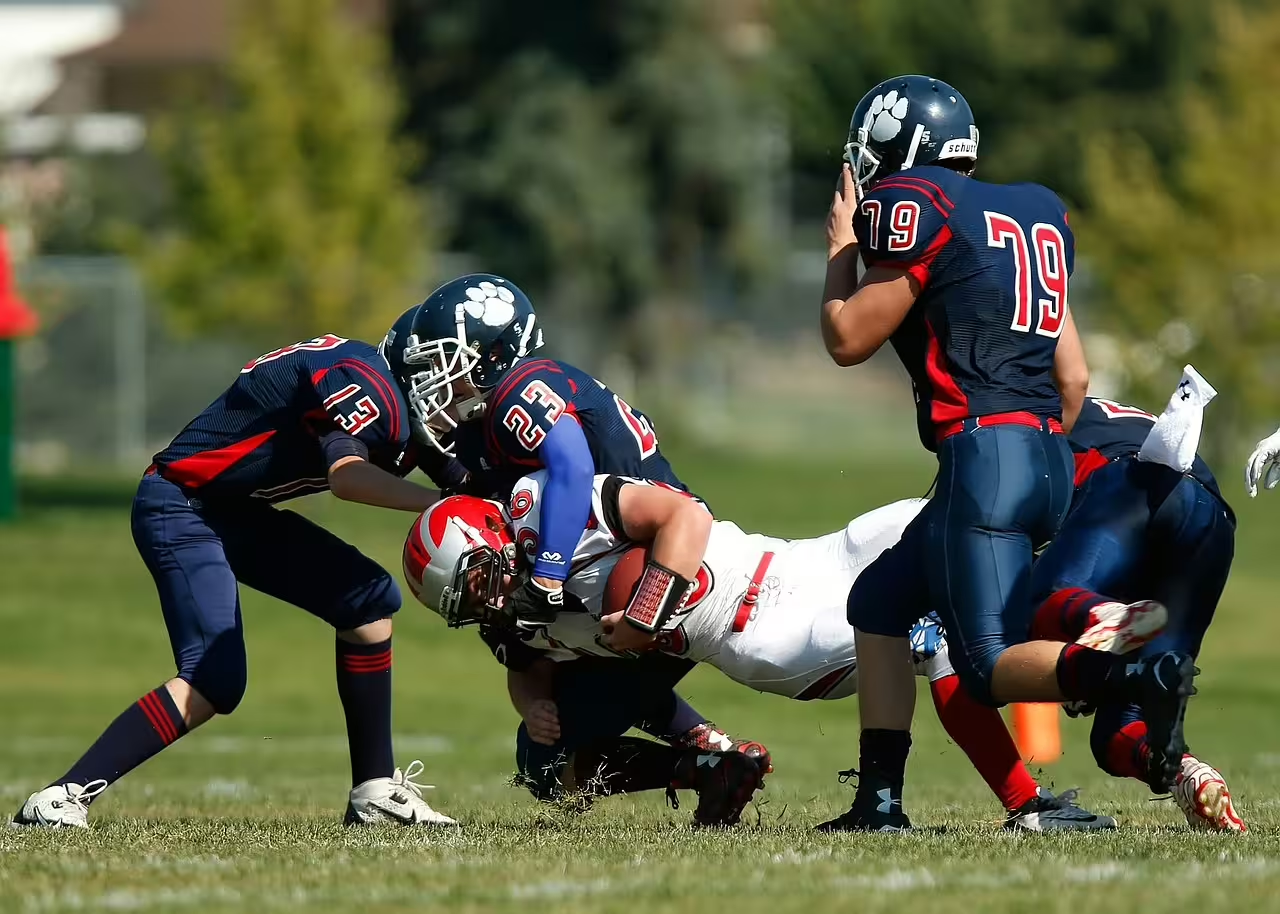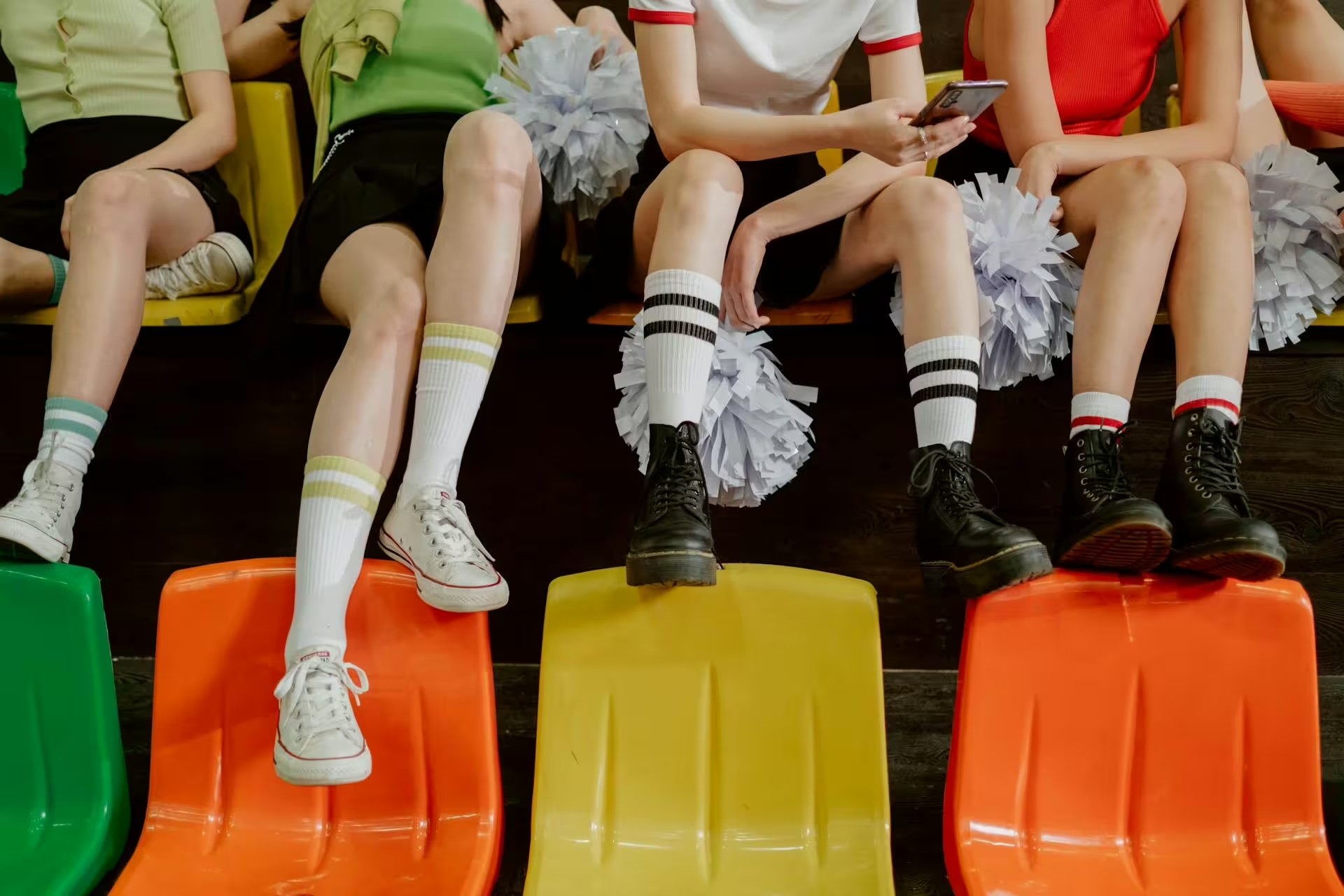Playing sports with one’s peers can be an important part of a child’s development. Team sports and really, youth sports as a whole, encourage physical health, social interaction, and self-discipline in children. Most of all, these activities are fun, they encourage children to be with others, face their fears, and accomplish things they might never have considered had they not stepped onto the field.
The same holds true for children with special needs, though in some cases, sports for children with certain challenges can prove to be a source of anxiety, rather than one of careless frivolity. Sometimes, those anxieties stem from social interactions or awkwardness. Other times, they come from an inability to handle certain sensory sensitivities the child might possess. There are also those children for whom routine is sacrosanct and the upending or shifting of daily norms can become a source of great discomfort. Finally, certain children feel the pressure of performing or fitting in more strongly than others.
As parents, we are in a unique position to help our kids navigate this rough emotional landscape and the best tool that we have to help in this regard is understanding. The more we know about sports anxiety in kids with special needs—and the better we learn how to nest respond to it— the more we, as parents, can help support them on their journey.
In this article, we will help parents to bolster their child’s growth, confidence, and long-term enjoyment of physical activity, even when anxiety is present. We will talk about what sports anxiety looks like in children with special needs, some of the most common causes of this anxiety, and some tried and true solutions to help manage or eliminate it!
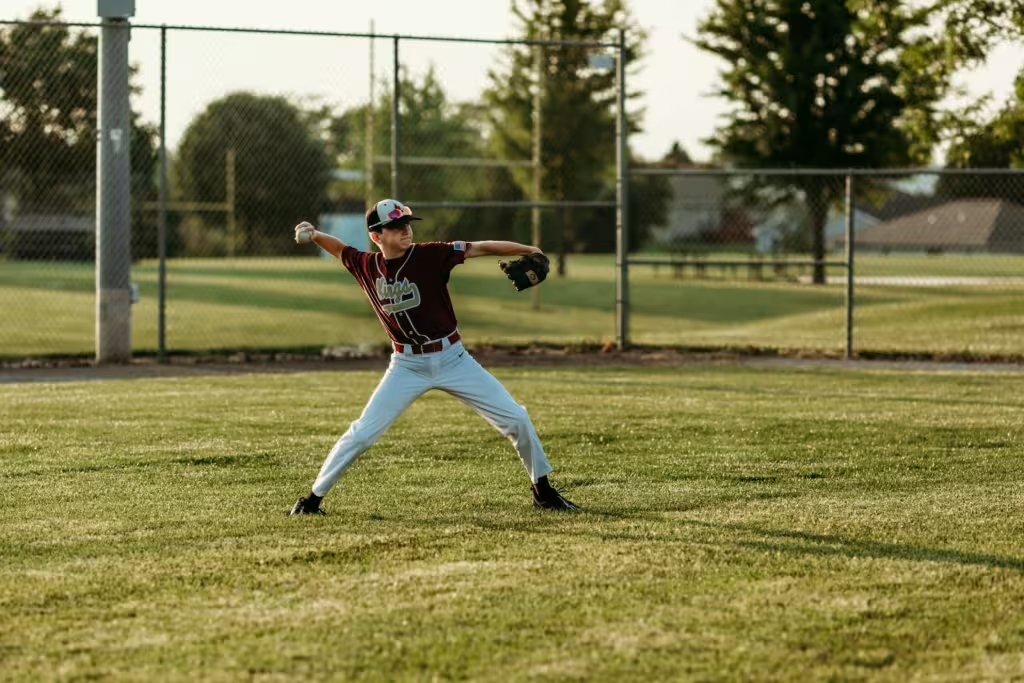
What Does Sports Anxiety Look Like?
Anxiety is a powerful emotion. Even as adults, we are constantly besieged by it. We feel it at work, when we are asked to perform. We experience it as parents, worrying about our children, how we are perceived, and how we can just keep up with the day-to-day necessities of life. In sports, these anxieties can be tied to the same concepts, performance, perception, and achievement. Nevertheless, sports anxiety can manifest differently in children with special needs. Many times, the anxiety is tied to their diagnosis, but it can also be affected by their personality and/or environmental factors.
As we touched on earlier, fear of not performing well or of being embarrassed in front of others can cause anxiety in children, but so can overstimulation, unfamiliar settings, or inherent difficulties with motor or social skills. Some things you’ll want to watch out for in terms of sports anxiety include:
- Avoiding practices or games
- Expressing physical ailments, i.e stomachaches or headaches before events
- Emotional meltdowns or shutdowns before or during sports practice
- Crying or emotional distress when even just discussing sports
- Clinginess or separation anxiety when dropping them off at a sporting event or practice
- Irritability or outbursts before, during, or after play
- Negative self-talk. For instance, them saying things like “I’m not good enough” or “Everyone will laugh at me.”
What is important to note here is that anxiety doesn’t always equate to a dislike of sports. Just because your child is showing some reticence does not mean they don’t want to participate. In most cases, they may want to participate, only their brains and bodies won’t let them. All that is needed might be a bit of extra support on your part.
Sports Anxiety and Special Needs
Children with special have a slightly different sports experience than their peers without such challenges. As such, they experience feelings or sensations of a physical, emotional, sensory, or social persuasion. Below are some of the most common contributing factors:
Sensory Overload
Many children with special needs are possessed of sensory processing challenges. These tend to be most common in kids that have autism, ADHD, and other related conditions. In essence, these children end up being overwhelmed by the sights, sounds, and/or physical demands of a sports environment. Common aspects of the sports experience, namely crowds, whistles, bright lights, and loud cheering, can be distressing for some children; and downright scary for others.
Fear of Judgment or Failure
Those children that struggle with motor coordination, speech, or following complex instructions may find themselves worrying over mistakes, just as they might be worried about being judged by peers, coaches, or spectators. This is understandable for many children, especially those who have experienced teasing or failure in the past. Such negative experiences can even enhance this anxiety.
Unfamiliar Routines
Transitions and unpredictable changes can be difficult for children with autism of who balk at even the slightest change of routine. Thus, kids who thrive on routine may feel anxious about game days, weather cancellations, or new and unfamiliar drills being introduced into the practice routine.
Social Challenges
The vast majority of youth sports experiences tend to have a massive social component. This is a great thing for kids that need to develop social skills and meet new people. Unfortunately, those children with social anxiety or who might have difficulties reading social cues, won’t feel quite so positive at first. Indeed, the pressure to interact, follow group dynamics, or interpret coaches’ directions can often be more intense than you or they are prepared to deal with.
Remember, only by understanding the root of your child’s anxiety can you take the first steps toward helping them build enough confidence to continue on.
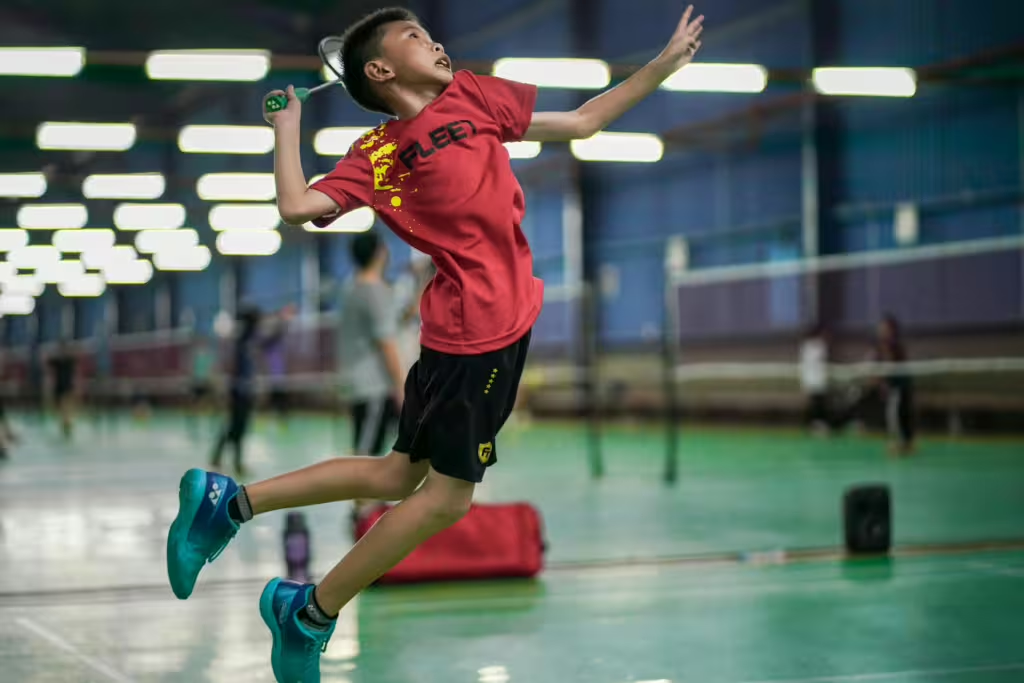
Creating a Supportive Environment
The next step in the process is to foster a safe, encouraging environment around your child’s sports experience. This is easy enough to achieve and it all starts with a helpful combinatoion of empathy and open communication.
Talk with Your Child
The first thing you’ll want to do is make sure your child knows they can talk to you about any of their concerns. Create a safe space where your child can express their thoughts and feelings without fear of judgement or reprisal. Ask them what part of practice makes them feel nervous. Have them tell you what they like about the sport or what would make the experience easier for them. Remember to listen without judgement, Don’t try to fix the issues right away, just let the child feel heard.
Collaborate with Coaches
Be open and honest with your child’s coach about their challenges and their emotional state. Before practice even starts, be sure to reach out to your child’s coach or team organizers to discuss everything. Don’t be shy or withhold info. Remember, most coaches want all players to succeed, they just may not be aware of how to support children with special needs. Also, if the coach feels dismissive or inept during your conversation, it could mean the current program isn’t as inclusive or understanding as you need it to be. In this case, it might be best to consider seeking out an adaptive or inclusive sports program in your area instead.
Prepare Ahead of Time
For most children with special needs, preparation is the key to long-term success. Help your child by giving them a heads up about what to expect. Some suggestions include visiting the field or gym so they can look around. You might want to write up or print out a schedule and/or a copy of the rules so they can study it ahead of time. Also, try practicing some of the basic sports skills and behaviors at home, that way they can catch-on in a low-pressure setting before moving into the real thing. Role-playing social situations like greetings, cheers, and the like may also help prepare them for unfamiliar social interactions.
When to Seek Professional Help

If your child’s anxiety becomes so extreme that it begins to interfere with their daily life beyond the sport itself, it may be time to speak with a professional. Child psychologists, occupational therapists, and behavioral therapists are all well-versed in the areas of anxiety and may even be familiar with your child’s underlying issues. Therefore, they are the best-suited for developing coping strategies that can be tailored to your child’s specific needs. When it comes to allaying fears, early intervention can make a big difference, especially when the anxiety is affecting a child’s self-esteem or social/emotional development.
Cultured Athlete Says…
As you can see, anxiety might be a difficult hurdle for some children to face in sports, but it is hardly insurmountable. Indeed, with a little understanding, some patience, effective preparation, and a healthy dose of parental compassion, you can help your child to get past their various anxieties. With your help, you will help them face their fears, build confidence, and create positive, lasting memories on the sports field. Remember, sports is about learning and growing, not just winning, but beating one’s own personal demons can be just as powerful a victory as any they might achieve during the course of a game.
Discover more from CulturedAthlete
Subscribe to get the latest posts sent to your email.

